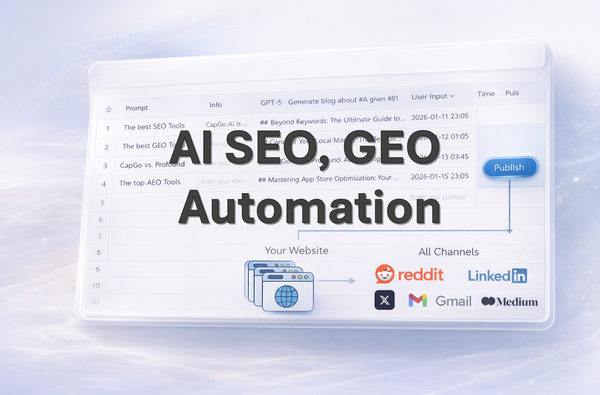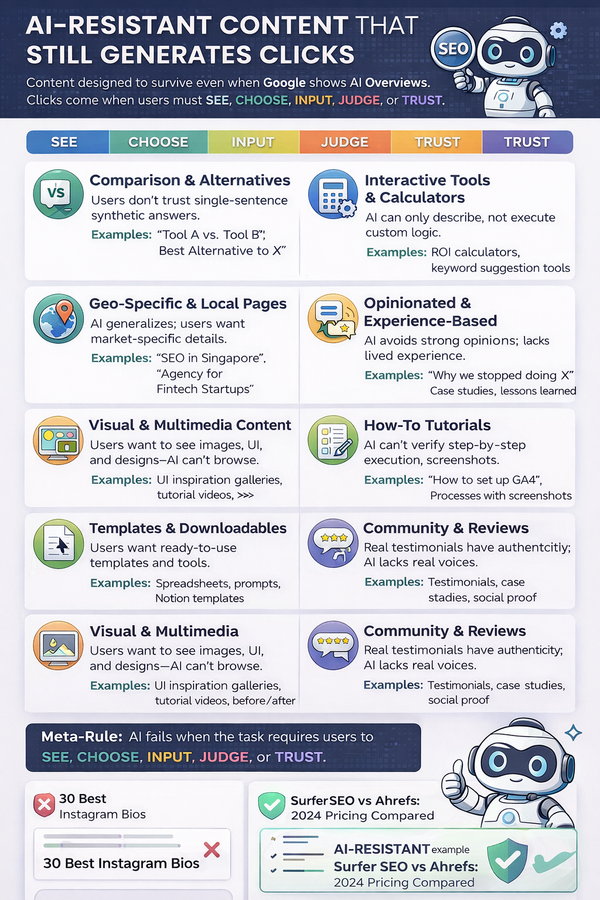Google SEO Leaks 2024: User Engagement, Chrome Data & Hidden Ranking Factors Revealed

Hidden rule of Google SEO traffic: your website's user engagement matters a lot.
We've been working on programmatic SEO but this leak is still fascinating.
🤯 The plot thickens in the world of Google SEO! Remember those leaked Google Search API documents from 2024? They're not just old news; they continue to offer fascinating (and sometimes contradictory) insights into how Google really ranks websites, even as we move further into 2025. These leaks have sparked intense debate and analysis within the SEO community, forcing us to re-evaluate long-held beliefs and strategies.
Building on our previous discussion, let's take an even deeper dive into the key takeaways from these leaks and explore their implications for your online success:
Your Users are Your Ranking Signal: Beyond Keywords, It's All About Engagement
Forget solely focusing on keyword density and technical optimizations. The leaks unequivocally confirm that Google heavily relies on user behavior data as a significant ranking factor. Systems like "Navboost" meticulously track how users interact with search results and the pages they land on. Metrics like "good clicks" (users finding what they need), "bad clicks" (quickly bouncing back to search results), and "last longest clicks" (the final click before a user finds their answer) paint a clear picture of user satisfaction.
Implication:
User satisfaction is no longer just a nice-to-have; it's a core ranking factor. This means your content needs to be genuinely valuable, easy to understand, and provide a positive user experience. Focus on:
- Reducing Bounce Rate: Ensure your content directly addresses the user's query.
- Increasing Dwell Time: Create engaging and in-depth content that keeps users on your page.
- Improving Click-Through Rate (CTR): Craft compelling titles and meta descriptions that entice users to click from the search results.
- Optimizing for User Intent: Understand why someone is searching for a particular term and provide the most relevant information.

Chrome's Massive Data Advantage: The Unseen Powerhouse
The "Chrome in Total" module reveals the sheer scale of data Google collects through its dominant Chrome browser. Every click, every site visit, every Browse pattern contributes to a massive dataset. While the direct impact of this data on individual rankings is still debated, its influence on Google's understanding of user intent, website popularity, and overall content quality is undeniable.
Implication: Google's browser dominance provides a significant, and perhaps unfair, data advantage. This allows them to gain insights into user behavior across the entire web, potentially informing their algorithms in ways that are difficult for competitors to replicate. This also raises important questions about data privacy and the fairness of the search market, a topic that continues to be debated by regulators and privacy advocates.
Site Authority is Real (Internally): Building Trust Over Time
Google consistently denies using a direct equivalent of third-party "domain authority" metrics. However, the leaks expose an internal "siteAuthority" metric. This suggests that Google does assess the overall trustworthiness and influence of a website as a whole, not just individual pages.
Implication: Building a reputable, trustworthy domain over time is crucial for long-term SEO success. Focus on:
- Creating High-Quality, Authoritative Content: Become a go-to resource in your niche.
- Earning High-Quality Backlinks: Get endorsements from other reputable websites.
- Ensuring E-E-A-T: Demonstrate Expertise, Authoritativeness, and Trustworthiness in your content and website.
- Maintaining a Consistent Online Presence: Regularly update your website and engage with your audience.
New sites might indeed face an uphill battle, requiring more time and effort to build this internal "siteAuthority."
The "Sandbox" Might Actually Exist: Patience for New Players
The concept of a "Google Sandbox" – a period where new websites struggle to rank – has been a long-standing debate. Google has repeatedly denied its existence. However, the "hostAge" attribute in the leaked files strongly suggests a mechanism where new websites (or those flagged as potential spam) are evaluated over time before being given full ranking potential.
Implication: If you're launching a new website, be prepared for a period where gaining significant traction might take time. Focus on:
- Targeting Low-Competition Keywords: Build initial visibility where you have a better chance of ranking.
- Building Strong Foundational SEO: Ensure your site is technically sound and user-friendly.
- Creating Valuable Content Consistently: Demonstrate your commitment to providing quality information.
- Building Trust Signals Gradually: Focus on earning legitimate backlinks and positive mentions.
Patience and persistence are key for new websites navigating this potential "sandbox" period.
Google's Public Statements vs. Reality: The Importance of Critical Thinking
Perhaps the most significant takeaway from these leaks is the clear discrepancy between some of Google's public statements and its internal practices. The existence of systems like Navboost and the "sandbox"-like "hostAge" directly contradicts previous denials.
Implication: Take Google's official guidance with a critical eye. While their advice can be helpful, it's essential to:
- Stay Updated on Industry News and Analysis: Follow reputable SEO experts and publications.
- Conduct Your Own Testing: Experiment with different strategies to see what works best for your website.
- Engage with the SEO Community: Share insights and learn from others' experiences.
Empirical evidence and community insights are often more valuable than solely relying on official statements.
Broader Impact: Reshaping the SEO Landscape
- For SEO Professionals: The focus must increasingly shift towards a holistic approach that prioritizes user experience, site-wide reputation, and long-term trust-building. Short-term tactics like clickbait or thin content are likely to backfire in the long run. We need to become experts in understanding user intent and creating truly valuable online experiences.
- For Competition: These revelations provide further ammunition for arguments surrounding Google's potential unfair advantage in the search market. The U.S. DOJ and other regulatory bodies are likely to scrutinize these findings as they continue to investigate Google's dominance. This could potentially lead to future regulations aimed at fostering a more competitive search landscape.
- For Users: While the intricacies of Google's algorithm might seem abstract, the extensive use of Chrome data raises significant privacy considerations. Understanding how our Browse habits shape our search experiences is crucial, and it's important for users to be aware of how their data is being used.
The 2024 Google Search API leaks offer a rare and invaluable peek behind the curtain of the world's most influential search engine. They confirm that Google's ranking system is far more nuanced and data-driven than publicly acknowledged. Ultimately, these insights reinforce the fundamental principle of focusing on providing genuine value to your users and building a reputable online presence.
Disclaimer: This information is based on analysis of leaked documents from 2024 and related testimonies as of March 15, 2025. Google's algorithms are constantly evolving, and the current implementation of these systems may differ.



